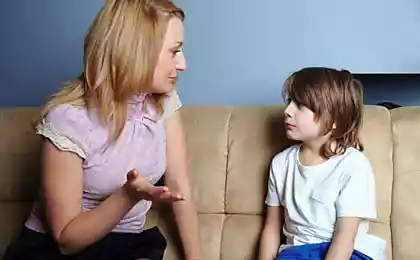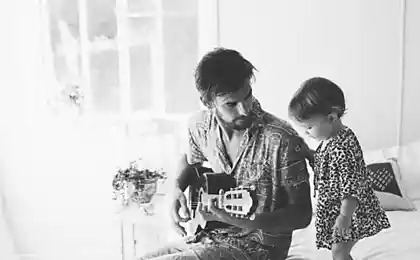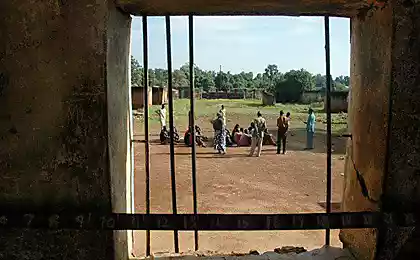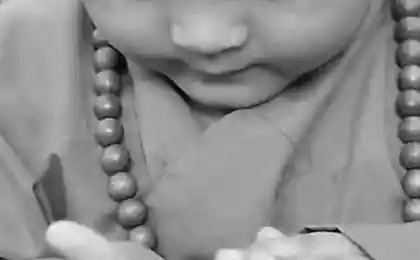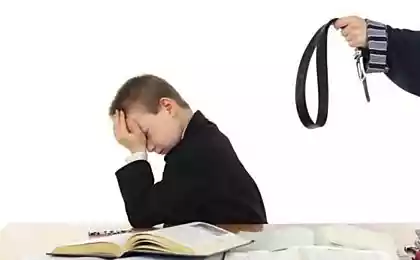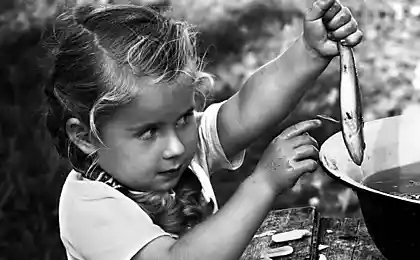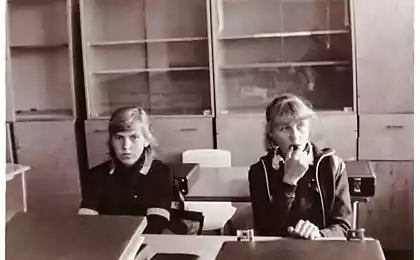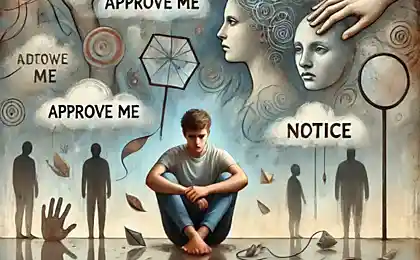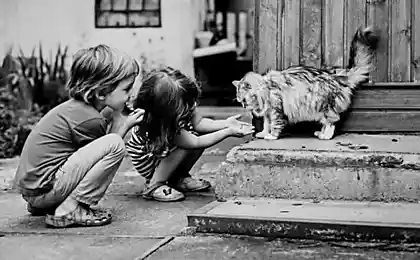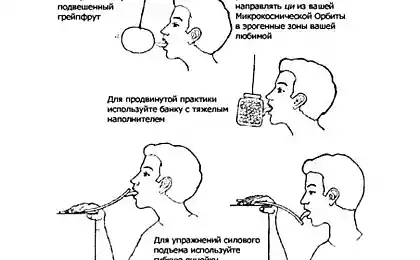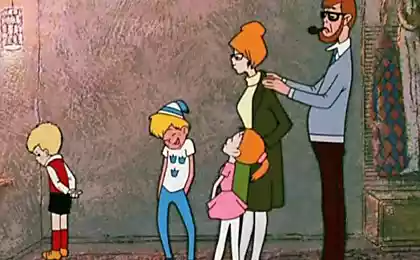519
Memo-manual-free-nakosyachili and nakasalalay educational life
PRACTICAL REBEKKAMARIA.
We often talk with parents about what the essence of education in General. And where is the line between education and manipulation, permissiveness, motivation, projecting their fears and unfulfilled expectations on the child. What can you convey to parents, his children, to his adult life the child will feel confident, secure and able to develop their potential? Once my psychology Teacher M. V. Voronov said a phrase that is firmly imprinted inside "the main and important thing that can make a mom (dad) for your child to give the feeling that it disclosed all roads...". And this, at least not to close them-these roads.
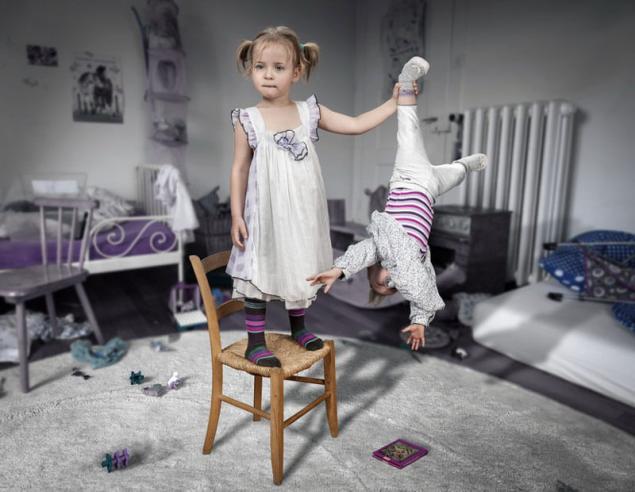
Let's speculate together. A parent in the first place, giving support, safety, Foundation soil, which may increase the potential. A parent provides a child with the Faith – in all senses, enhances (or destroys) the inner stem. The parent gives the resource – love, understanding, respect. Help children find access to his own Resource. The parent gives the knowledge of the laws – the rules by which the world lives.
The parent teaches the child the "rules of the road" extended to the whole world. These rules give a sense of security to all participants of movement-of life J And, of course, education is always a balance between democracy and borders.
In the theory of psychology there are many theories about how to "properly" punish– rein - to show the consequences of inappropriate behavior the child. I refer to psychologists who oppose CORPORAL PUNISHMENT. For a child, whose body is invaded, the world becomes unsafe. Forever. The child, fearing that he would be beaten – will be manageable and good. He can choose life script "victims" and passive "bedcheck". And you lose contact with your authenticity, your power and your potential. It will become part of the crowd. Or... will still bring the pain, the resentment, the humiliation of the world. Not in childhood, as in adulthood. And with the force that no longer hold.
So
1. Freedom is not synonymous with permissiveness.
We assume that any healthy body is constantly evolving. And how is the development? If we draw a parallel between the baby and crustacean development is the constant change of shell-shell. I.e. the constant expansion of its borders. In a very narrow shell of the crustacean will be uncomfortable and he is sick, in a very free – too unsafe and impossible to move.
2. any child will seek to expand the boundaries. It is important for us to feel (to know in books and articles in developmental psychology), what are needs and what are the tasks of a particular age. What "armor" is now relevant.
We all remember that every baby develops in their framework. And General advice, unfortunately, rarely work. And what works in educating your friends and family can be right for your child useless.
It is important that the punishment fit the awareness and the child's age.
1.5 – 2 years own control over emotions, feelings, impulses doesn't work. The child does something impulsive or imitating others.
Child it is important to say – you can'T, STOP, take out tension areas, and to shift attention to something else.
2.5 to 4 years – the time of development of consciousness. The time when the child only learns to take responsibility for actions and their consequences. You need to give the child a pause for reflection (to sit on the bench, for example), and then to help cope with the consequences, to apologize, to collect the pieces on the scoop cups and so on
3,5 – 5 years – it is very important respect for the individual. To beat, to humiliate, to abuse especially in the presence of others is not recommended. We can say – now let's fix what is done. We will look home. (or let's think together, how to behave in the future)
After 5 years, the child realizes that violates the rules. It is IMPORTANT THAT THESE RULES were SPELLED out IN the HOME CONSTITUTION or sentences, and together with the child to the home Council, a decision was made, what are the penalties (punishments) are imposed for violations of the rules.
We remember that we are trying to punish – depriving good and not doing bad to a child of any age.
3. Any, the most adapted, the most obedient child from time to time will be the buzz. DOESN'T MAKE YOU BETTER OR WORSE PARENTS. It's important to separate your self-esteem and the child's behavior
4. The fourth rule. You know what the most afraid of children? – mom and dad's angry eyes! How would you not angry that the child would not get up in front of your eyes can be serious, but seriousness. Not anger!
The ancient Slavs were masters of a harsh upbringing. Rods, etc. "educational" means. But this punishment is perceived as fair. Do you know why? They had an ancient ritual, before punishing a child, before you tell him something hard – mentally they put before the child in your heart. And then a child of any age knew (or rather felt) that the parent is doing something out of love and not of cruelty.
Once a wise grandmother taught me – when you have your child before you say something to him, pray and asked God to place in your lips the right words. Of course, prayer-meditation is any method of self-regulation of any belief system, helps us get out of emotional sasikala and ustroitsja in the balance. This condition is generally easy to live and speak. And if we imagine that you lead to Faith, then we give the child something more than just education.
5."Correct" punishment should help the child to develop, and not to take away his power.
Once friends-Hairdryer-Christy told me about the layout of the house. Focusing on that ANGLE IS DESIGNATED in the OUTFLOW FORCES. Now it is clear why in the corner we send kids to "think"? J
6. Often the kids we put out the fact that they need to repeat many times the same thing. It seems to us that it's their favorite game, "get parent", which they invariably win. And we shout to them – "well why don't you learn, why you never learn" – it is important to remember that for the repetition, assimilation of experience to respond to certain parts of the brain that is completely included in the work of the child is only 4 years, and sometimes later. Until that time, the baby is not retaining the sequence and consequences of their actions. He only learns. Therefore, any rule that requires a minimum of 30-40 reps until the "own acquisition"
7. Kids to-speech period (until, not yet mastered human speech), establish contacts... with the help of the physical body. You watched on the Playground, a toddler approaches another and... enthusiastically pounding his shovel to the head? Or toddler hits his mother and laughing at the same time fun eye contact. For a child is a trial to establish contact. The way that is now possible for him. It is, for example, throwing someone a toy or when the neighbor's sandbox sand – like lengthens my pen to the new person. And, of course, explores – and what will be the reaction?! Before horrified that we have a growing aggressive monster or a neighbor kid — the future maniac – inhale-exhale, remember that such behavior is the NORM with toddlers. But just remember – the child tries and tries different behaviors, including watching to see our reactions. And it needs to be. Remember that if a child is doing something BODY, to stop his useless WORDS. They are completely different languages. Our response must be quick, adequate and logical. Have you seen these sketches – mom pounding baby, saying "don't fight! Do not fight me, I said!!!". Or the kid with full force hits the grandmother in the face – she kisses the Cam. Baby has dad, confident that the reaction will be the same celovecernji... and dad, for some reason is not happy....Imagine what a strange dualistic experience gets the child? So, if the action is done by the body – our return effect is also bodily. Hitting a child in response – not. Stop – can and should be. We catch the hand of the baby, a little bit of her compressed (gently, painlessly, but firmly enough) looking CALMLY in the eye and say – I (people, children, etc) can not be beat... and of course, remember point 6 (see above).
Unclassified Secrets:
Punishment is always a reaction to a rule violation of which the child knew. Punishment – natural consequences of the offense.... The punishment for the act once (no prolongation) – ukazaniem time, when (child's entire world and life in the present moment – it seems that the punishment will last forever. It is important to say, you lose TV privileges for 2 days)
Remember that trying to go through rules is one way to try borders. To probe – what will change in the world, if I...it's perfectly natural.
Until such time as the child does not say about yourself "I" because it may not correlate the punishment with his personality...
The punishment, not the threat of intimidation. A child is easier to survive something and live, than to live in suspense, waiting for something strashnyuchy.
When disciplining children tend not to remember all the previous faults and mistakes, You talk to them only about what he is punished now. Tumbling is not everything that had accumulated in memory.
Punishment of children should be consistent, and not from case to case. (i.e., one day we skipped a misdemeanor, the other day for the same punish)
The offense needs attention. If we do not give attention (pretend nothing happened), the child will find how to punish yourself. Autoaggression, broken vases, bad marks, bruises, torn pants....
We punish for a misdemeanor... feelings can not be punished. Feelings can't be good or bad.
When disciplining children should avoid insults and sticking "labels". Confronteren — is considered only the behavior or a specific act of the child, not his personality.
Punish the child in front of other children, people – is unacceptable.(by the way, this is unacceptable as someone is punished and someone is watching). From the theory of traumatherapie big injury is the one who is watching the violence.)
If the family has several children. In the case where the senior think (or not think, but perfectly adequate seen) that he was punished unfairly and harshly – it will give you an injustice. Who? Whoever is in a more vulnerable psychological position. (a younger brother, sister, grandmother, nanny, cat, vases with flowers...)
Not to punish like we were punished in childhood all, we have only one experience of life — from our own childhood. (analyze, does this look like what you are doing with your children on what to do with you? And have you talked about this when I was a child, "now when you grow up, never to do so will not".)
We often during the day bear the tension, and then, the cub as a "lightning rod" pulls it. I can. The most common parental errors are the solution of personal problems through child-to-child gets something that is often worn for a partner...
Once upon a time wrote in his archive of materials colleagues:
Rules physical punishment of a child (three constraints in the development of a conscious attitude to parental "no"): 1. You can't threaten physical punishment of the child.
2. You can not physically punish the child, putting back his anger at the world....
3. It is impossible to physically punish a child older than three years, not to demean his personality (and up to three years to punish physically longer J)
From the theory of punishment:
There are 2 forms
The first relates to different forms of deprivation (or love): we are trying to deprive the activities of, deny contact, immobilize ( in a corner, on a chair),
The second relies on the fact that from our impact child pristroitsya: fears, e.g. fear of alienation or fear of pain. This includes shouts, looks, and moral pressure (the pressure of words, buzzing and hissing, screaming
physical punishment is. Remember again, for a child not afraid of our actions, and our terrible eyes....Almost a punishment for a small child lies not so much in words or actions, but in their emotional and intonational coloring. Physical punishment do not add other actions if you have already managed to cause a feeling of fear.
We know how to fight, but to put up and out of quarrels and conflicts, we are unfortunately, rarely taught. And we bear the burden of emotions, frustration, anger, powerlessness, not letting yourself "in the future"... And we all know that the child has no sense of time, and for him every moment is an Eternity. And our sadness, irritation, anger is to him painful. And he stares at us, trying to catch our eye and tries to read – she loves-I still have it or not?
Please help your child and yourself – to stay in Contact. So you make a huge contribution to his future adult relationship. Think of your family Pets the secret rituals of reconciliation. This will help to "close the door" past and the "open door" of the future. :-) maybe it will be a secret handshake or one of the children's rituals is to fold the toe, caught them one after another and say "make your peace and don't fight anymore". (physiologic toe-in projection is responsible for the heart along with the hearts will heal), or you decide just to hug, clinging tightly to each other...
Calm, wise, fun of growing your families. published
Author: Svetlana Roiz
P. S. And remember, just changing your mind — together we change the world! ©
Source: www.facebook.com/notes/390208144348436/?pnref=story
We often talk with parents about what the essence of education in General. And where is the line between education and manipulation, permissiveness, motivation, projecting their fears and unfulfilled expectations on the child. What can you convey to parents, his children, to his adult life the child will feel confident, secure and able to develop their potential? Once my psychology Teacher M. V. Voronov said a phrase that is firmly imprinted inside "the main and important thing that can make a mom (dad) for your child to give the feeling that it disclosed all roads...". And this, at least not to close them-these roads.

Let's speculate together. A parent in the first place, giving support, safety, Foundation soil, which may increase the potential. A parent provides a child with the Faith – in all senses, enhances (or destroys) the inner stem. The parent gives the resource – love, understanding, respect. Help children find access to his own Resource. The parent gives the knowledge of the laws – the rules by which the world lives.
The parent teaches the child the "rules of the road" extended to the whole world. These rules give a sense of security to all participants of movement-of life J And, of course, education is always a balance between democracy and borders.
In the theory of psychology there are many theories about how to "properly" punish– rein - to show the consequences of inappropriate behavior the child. I refer to psychologists who oppose CORPORAL PUNISHMENT. For a child, whose body is invaded, the world becomes unsafe. Forever. The child, fearing that he would be beaten – will be manageable and good. He can choose life script "victims" and passive "bedcheck". And you lose contact with your authenticity, your power and your potential. It will become part of the crowd. Or... will still bring the pain, the resentment, the humiliation of the world. Not in childhood, as in adulthood. And with the force that no longer hold.
So
1. Freedom is not synonymous with permissiveness.
We assume that any healthy body is constantly evolving. And how is the development? If we draw a parallel between the baby and crustacean development is the constant change of shell-shell. I.e. the constant expansion of its borders. In a very narrow shell of the crustacean will be uncomfortable and he is sick, in a very free – too unsafe and impossible to move.
2. any child will seek to expand the boundaries. It is important for us to feel (to know in books and articles in developmental psychology), what are needs and what are the tasks of a particular age. What "armor" is now relevant.
We all remember that every baby develops in their framework. And General advice, unfortunately, rarely work. And what works in educating your friends and family can be right for your child useless.
It is important that the punishment fit the awareness and the child's age.
1.5 – 2 years own control over emotions, feelings, impulses doesn't work. The child does something impulsive or imitating others.
Child it is important to say – you can'T, STOP, take out tension areas, and to shift attention to something else.
2.5 to 4 years – the time of development of consciousness. The time when the child only learns to take responsibility for actions and their consequences. You need to give the child a pause for reflection (to sit on the bench, for example), and then to help cope with the consequences, to apologize, to collect the pieces on the scoop cups and so on
3,5 – 5 years – it is very important respect for the individual. To beat, to humiliate, to abuse especially in the presence of others is not recommended. We can say – now let's fix what is done. We will look home. (or let's think together, how to behave in the future)
After 5 years, the child realizes that violates the rules. It is IMPORTANT THAT THESE RULES were SPELLED out IN the HOME CONSTITUTION or sentences, and together with the child to the home Council, a decision was made, what are the penalties (punishments) are imposed for violations of the rules.
We remember that we are trying to punish – depriving good and not doing bad to a child of any age.
3. Any, the most adapted, the most obedient child from time to time will be the buzz. DOESN'T MAKE YOU BETTER OR WORSE PARENTS. It's important to separate your self-esteem and the child's behavior
4. The fourth rule. You know what the most afraid of children? – mom and dad's angry eyes! How would you not angry that the child would not get up in front of your eyes can be serious, but seriousness. Not anger!
The ancient Slavs were masters of a harsh upbringing. Rods, etc. "educational" means. But this punishment is perceived as fair. Do you know why? They had an ancient ritual, before punishing a child, before you tell him something hard – mentally they put before the child in your heart. And then a child of any age knew (or rather felt) that the parent is doing something out of love and not of cruelty.
Once a wise grandmother taught me – when you have your child before you say something to him, pray and asked God to place in your lips the right words. Of course, prayer-meditation is any method of self-regulation of any belief system, helps us get out of emotional sasikala and ustroitsja in the balance. This condition is generally easy to live and speak. And if we imagine that you lead to Faith, then we give the child something more than just education.
5."Correct" punishment should help the child to develop, and not to take away his power.
Once friends-Hairdryer-Christy told me about the layout of the house. Focusing on that ANGLE IS DESIGNATED in the OUTFLOW FORCES. Now it is clear why in the corner we send kids to "think"? J
6. Often the kids we put out the fact that they need to repeat many times the same thing. It seems to us that it's their favorite game, "get parent", which they invariably win. And we shout to them – "well why don't you learn, why you never learn" – it is important to remember that for the repetition, assimilation of experience to respond to certain parts of the brain that is completely included in the work of the child is only 4 years, and sometimes later. Until that time, the baby is not retaining the sequence and consequences of their actions. He only learns. Therefore, any rule that requires a minimum of 30-40 reps until the "own acquisition"
7. Kids to-speech period (until, not yet mastered human speech), establish contacts... with the help of the physical body. You watched on the Playground, a toddler approaches another and... enthusiastically pounding his shovel to the head? Or toddler hits his mother and laughing at the same time fun eye contact. For a child is a trial to establish contact. The way that is now possible for him. It is, for example, throwing someone a toy or when the neighbor's sandbox sand – like lengthens my pen to the new person. And, of course, explores – and what will be the reaction?! Before horrified that we have a growing aggressive monster or a neighbor kid — the future maniac – inhale-exhale, remember that such behavior is the NORM with toddlers. But just remember – the child tries and tries different behaviors, including watching to see our reactions. And it needs to be. Remember that if a child is doing something BODY, to stop his useless WORDS. They are completely different languages. Our response must be quick, adequate and logical. Have you seen these sketches – mom pounding baby, saying "don't fight! Do not fight me, I said!!!". Or the kid with full force hits the grandmother in the face – she kisses the Cam. Baby has dad, confident that the reaction will be the same celovecernji... and dad, for some reason is not happy....Imagine what a strange dualistic experience gets the child? So, if the action is done by the body – our return effect is also bodily. Hitting a child in response – not. Stop – can and should be. We catch the hand of the baby, a little bit of her compressed (gently, painlessly, but firmly enough) looking CALMLY in the eye and say – I (people, children, etc) can not be beat... and of course, remember point 6 (see above).
Unclassified Secrets:
Punishment is always a reaction to a rule violation of which the child knew. Punishment – natural consequences of the offense.... The punishment for the act once (no prolongation) – ukazaniem time, when (child's entire world and life in the present moment – it seems that the punishment will last forever. It is important to say, you lose TV privileges for 2 days)
Remember that trying to go through rules is one way to try borders. To probe – what will change in the world, if I...it's perfectly natural.
Until such time as the child does not say about yourself "I" because it may not correlate the punishment with his personality...
The punishment, not the threat of intimidation. A child is easier to survive something and live, than to live in suspense, waiting for something strashnyuchy.
When disciplining children tend not to remember all the previous faults and mistakes, You talk to them only about what he is punished now. Tumbling is not everything that had accumulated in memory.
Punishment of children should be consistent, and not from case to case. (i.e., one day we skipped a misdemeanor, the other day for the same punish)
The offense needs attention. If we do not give attention (pretend nothing happened), the child will find how to punish yourself. Autoaggression, broken vases, bad marks, bruises, torn pants....
We punish for a misdemeanor... feelings can not be punished. Feelings can't be good or bad.
When disciplining children should avoid insults and sticking "labels". Confronteren — is considered only the behavior or a specific act of the child, not his personality.
Punish the child in front of other children, people – is unacceptable.(by the way, this is unacceptable as someone is punished and someone is watching). From the theory of traumatherapie big injury is the one who is watching the violence.)
If the family has several children. In the case where the senior think (or not think, but perfectly adequate seen) that he was punished unfairly and harshly – it will give you an injustice. Who? Whoever is in a more vulnerable psychological position. (a younger brother, sister, grandmother, nanny, cat, vases with flowers...)
Not to punish like we were punished in childhood all, we have only one experience of life — from our own childhood. (analyze, does this look like what you are doing with your children on what to do with you? And have you talked about this when I was a child, "now when you grow up, never to do so will not".)
We often during the day bear the tension, and then, the cub as a "lightning rod" pulls it. I can. The most common parental errors are the solution of personal problems through child-to-child gets something that is often worn for a partner...
Once upon a time wrote in his archive of materials colleagues:
Rules physical punishment of a child (three constraints in the development of a conscious attitude to parental "no"): 1. You can't threaten physical punishment of the child.
2. You can not physically punish the child, putting back his anger at the world....
3. It is impossible to physically punish a child older than three years, not to demean his personality (and up to three years to punish physically longer J)
From the theory of punishment:
There are 2 forms
The first relates to different forms of deprivation (or love): we are trying to deprive the activities of, deny contact, immobilize ( in a corner, on a chair),
The second relies on the fact that from our impact child pristroitsya: fears, e.g. fear of alienation or fear of pain. This includes shouts, looks, and moral pressure (the pressure of words, buzzing and hissing, screaming
physical punishment is. Remember again, for a child not afraid of our actions, and our terrible eyes....Almost a punishment for a small child lies not so much in words or actions, but in their emotional and intonational coloring. Physical punishment do not add other actions if you have already managed to cause a feeling of fear.
We know how to fight, but to put up and out of quarrels and conflicts, we are unfortunately, rarely taught. And we bear the burden of emotions, frustration, anger, powerlessness, not letting yourself "in the future"... And we all know that the child has no sense of time, and for him every moment is an Eternity. And our sadness, irritation, anger is to him painful. And he stares at us, trying to catch our eye and tries to read – she loves-I still have it or not?
Please help your child and yourself – to stay in Contact. So you make a huge contribution to his future adult relationship. Think of your family Pets the secret rituals of reconciliation. This will help to "close the door" past and the "open door" of the future. :-) maybe it will be a secret handshake or one of the children's rituals is to fold the toe, caught them one after another and say "make your peace and don't fight anymore". (physiologic toe-in projection is responsible for the heart along with the hearts will heal), or you decide just to hug, clinging tightly to each other...
Calm, wise, fun of growing your families. published
Author: Svetlana Roiz
P. S. And remember, just changing your mind — together we change the world! ©
Source: www.facebook.com/notes/390208144348436/?pnref=story
Caramelized nuts with cinnamon, ginger and coffee
Signs of parasites in the body. Check yourself and your loved ones!

